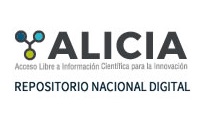Exploring climate change and food security through traditional knowledge approach
DOI:
https://doi.org/10.31381/pluriversidad14.7208Abstract
Climate change is a powerful threat to food security, with the population in poverty being more vulnerable. This research investigates how climate change is affecting food security and propose resilience, mitigation and adaptation strategies from a traditional knowledge approach. The method was qualitative; workshops and in depth - interviews were held in the communities Mushuk Belen, Anak Pilluana and Morillo in the San Martin region, Peru. The population perceives an increase in heat and a reduction in rainfall in recent years and a disordered climate. They consider deforestation to be the main cause of climate change. This would have generated the disappearance of crops and animals, low crop productivity, the need to use fertilizers and agrochemicals, an increase in pests, a reduction in the flow of the Huallaga River, a reduction in fishing and a change in eating habits, among others. Reforestation, proper management of forests respecting nature and polycultures on farms are essential to mitigate and adapt to climate change and contribute to food security.
Downloads
Downloads
Published
How to Cite
Issue
Section
License
Copyright (c) 2024 PLURIVERSIDAD

This work is licensed under a Creative Commons Attribution-NonCommercial 4.0 International License.
Licencia de uso Creative Commons 4.0. Atribución-No Comercial(CC BY-NC)
![]()




